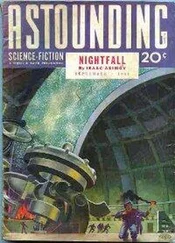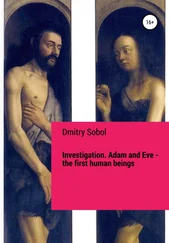A question of some importance to them was whether or not Minty should be invited. For the sake of everyone’s working hours, the party had to be in the evening. Minty would be at home.
“I thought it was supposed to be just family,” Sonovia had said.
“I think of Minty as family.”
“If I didn’t know you inside out, Lafcadio Wilson, I’d sometimes think you fancied Minty.”
Laf was shocked. A man with a rigid moral code, he was horrified by even the fringes of adultery. His biggest nightmare (after untimely death) was that one of his children should be divorced. A bit premature, as Sonovia always said, since so far only one of them was married. “Don’t you be disgusting,” he said severely. “You know how I hate that kind of talk.”
Sonovia always realized when she’d gone too far. She said rather huffily, “It’s your birthday. You do as you like. Maybe you’d like to ask Gertrude Pierce as well.”
Not deigning to reply, Laf went next door with the paper and invited Minty to his party.
She responded in her usual way, without enthusiasm, without saying thank you: “All right.”
“It’ll be just the family but we think of you as family, Minty.”
She nodded. It was as if, he thought, she accepted these things as her right. But she offered him a cup of tea and the kind of biscuit that brought the adjective clean into his mind, it was so pale, thin, and dry. Rather like Minty herself, in fact. It had worried him in the past that she seemed to see things that weren’t there and to talk to unseen people. Now she was calm, like an ordinary person. And when she arrived at the party she was the same, saying a cheerful “Hello” to everyone, helping herself, if cautiously, to food from Sonovia’s lavish buffet, and when Florian turned up an hour earlier than anyone expected, greeting him with “You are a stranger. Haven’t seen you for a long time.”
The conversation turned to the murder of Eileen Dring. Laf had known it would and hoped it wouldn’t. He refused to take part in it and thought his children ought to have known better than to speculate about one rumor that the chief suspects were a married couple in West Hampstead, and another that two young kids were responsible. He deflected Daniel away from it by reverting to the problem he’d first raised with Sonovia weeks before. Ever since then he’d been thinking of it on and off without coming to any conclusion. “Suppose you killed someone without knowing it was wrong? I mean, suppose you-had a sort of delusion that someone wasn’t what they are but was-well, Hitler or Pol Pot, someone like that, and you killed them. Would that be wrong or wouldn’t it?”
“What’s brought this on, Dad?”
Why did one’s children, better educated than oneself, always ask that question if one ever dared say something out of the ordinary? Why did they always expect their parents to be mindless idiots? “I don’t know,” he said. “I’ve been thinking a lot about it lately.”
“Did he know what he was doing,” asked Corinne, “and if he did, did he know it was wrong?”
“Eh?” Laf said.
“It’s a sort of test applied to defendants.”
“But is it wrong?”
“These days a psychiatrist would be called to examine him. And if he hadn’t known what he was doing they’d put him away somewhere in a hospital for the criminally insane. I’d have thought you knew that, Dad. You’re a police officer.”
Exasperated, Laf said, “I do know it. I’m not asking if he’d have committed a crime. I know about crime. I’m asking if what he did would be wrong . What they used to call a sin. Morally wrong.”
His younger daughter, attracted by something more interesting than the conversation her mother had been having with Minty on the subject of spray starches, had been listening. He turned to her. “You’re doing philosophy at university, Julianna. You ought to know the answer. Would it be wrong?”
“That’s not philosophy, Dad. That’s ethics.”
“Okay, but would it be wrong? Would it be a sin?”
Julianna looked as if the word embarrassed her. “I don’t know about sin. You’d have to know you were doing something against your moral code for it to be wrong. I mean, an Aztec who sacrificed a child to please his god would think he was doing right because it would be in accordance with his moral code, but the Catholic conquistador would know it was wrong because it was against his.”
“So there’s no such things as absolute wrong? It just depends on when and where you live?”
“Well, and on whether or not you’re schizophrenic, I should think,” said Daniel.
It was to everyone’s surprise that Minty spoke. “Murder’s wrong,” she said loudly. “It’s always wrong. It’s taking away someone’s life. You can’t get round that.”
“If there was ever a gloomy subject for a birthday party,” said Sonovia, “this crowns it all. Open another bottle of wine, for goodness’ sake, Laf.” She was at the window, where she’d moved when everyone converged on Laf and his problem in ethics. “Minty,” she exclaimed. “Look at this. There’s an ambulance next door. It must be for Mr. Kroot.”
Though midsummer, it was quite dark by now and raining, but they all crowded to the window to see the paramedics come out, not with a stretcher, but a wheelchair in which the old man sat, a blanket over his knees and another over his head.
“Heart attack or stroke,” said Sonovia. “Take your pick. It could be either.”
Julianna was coming round with freshly filled wineglasses when the doorbell rang. The paramedic on the doorstep handed Sonovia a key and said, “He says, will you feed his cat? There’s tins in the cupboard.”
“What’s he got wrong with him?”
“I couldn’t say. There’ll have to be tests.”
Kieran Goodall’s mother, Lianne, finally came home at midnight. Though not verbally reproached for her absence from the house, she obviously believed that the best form of defense was attack. First she told the police officers that she wasn’t Kieran’s mother but his stepmother, so couldn’t be held responsible for his behavior. His mother had disappeared years ago and having married Lianne, his father also had gone. He and she, without claim on one another, had lived here for the past five years. Maybe she was his guardian, no one had made her so, it had just happened. Having asked, “What’s he done?” she hadn’t waited for an answer but had launched into a tirade against the Social Services who, she said, had been only too pleased to “dump” him on her and hadn’t even tried to find his natural parents. Told about the money missing from Eileen Dring’s holdall and the money found on Kieran and Dillon, she said that crazy old people ought to be stopped from carrying large sums about with them. It was a temptation to young kids. Kieran was asked about the knife. He’d put it in a litter bin, he said, and began shrieking with laughter.
“If you’ve had one of my knives, Kieran,” said his stepmother, “I’ll knock the living daylights out of you.”
Half a mile away in Kensal Road, Dillon Bennett had withdrawn his remark about putting the knife down a drain. He’d never seen a knife. By now, sitting in one of the battered leather armchairs squeezed up against his sister who had one arm round him, he told his questioners Eileen Dring had been dead when he and Kieran came upon her.
“How did you know she was dead, Dillon?”
“She was all over blood. Buckets of it. She had to be dead.”
His head drooped and he fell asleep.
IT SEEMED TO Michelle in vain that she told Violent Crimes she and Matthew scarcely knew where the site of the murder was. This part of London was unknown territory. Like all Londoners, they had heard of the cemetery, but that was all.
Читать дальше











